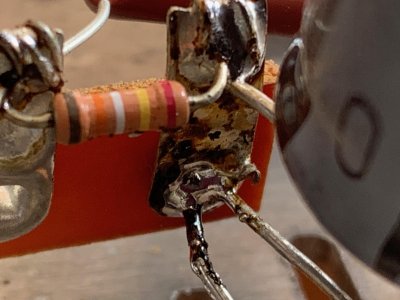denti alligator
New member
I’ve had my Stereomour II (w/ shunt regulator) for about 6 years now. Almost no issues. Lately I’ve been so swamped at work that I haven’t had the chance to listen to much music at all. It’s been 2 or maybe even 3 weeks since I turned it on. Today I turned it on and got a scratchiness (slight pops, too) in the right channel and no sound at all in the left channel. I have swapped tubes. No change. Tomorrow I’ll put it on the bench. What should I look for as a possible cause?

